Freelancing has become more popular than ever. While working for yourself sounds exciting, many new freelancers struggle to stay productive, find consistent work, and set proper boundaries.
The biggest mistake freelancers make is assuming freelancing is easy. Without a structured office environment, distractions creep in, time management becomes difficult, and financial instability can feel overwhelming.
The good news is that these problems can be avoided. With the right approach, freelancing can be both profitable and sustainable. Let’s go over the most common mistakes new freelancers make and how to fix them.
Lacking a Professional Workspace Hurts Productivity
Many freelancers start their journey by working from the couch, bed, or kitchen table. While this may seem comfortable, it often leads to distractions, poor posture, and difficulty separating work from personal life.
A dedicated workspace signals to your brain that it’s time to focus. It also helps create a professional mindset, making it easier to get into “work mode.” Without one, you might find yourself constantly interrupted or struggling to concentrate.
Setting up a proper workspace doesn’t require a full home office. A simple desk with good lighting and a comfortable chair makes a big difference: for those with limited indoor space, repurposing a garden shed into a home office can be a surprisingly effective and affordable solution. The key is to create an environment that allows you to focus and work efficiently.
Not Investing in the Right Training Before Going Full-Time
Many aspiring freelancers dive into self-employment without fully understanding what it takes to build a sustainable career. They assume that having a skill—whether it’s writing, design, or marketing—is enough to succeed. However, freelancing is more than just doing the work; it requires business skills, client management, and financial planning.
The best way to avoid these pitfalls is to get proper training before going all-in. Programs like the Digital Nomad Bootcamp provide step-by-step guidance on launching a successful freelance career, covering everything from remote job hunting to productivity strategies. With the right foundation, freelancers can avoid common mistakes and build a profitable, location-independent business.
Not Setting Work Hours Leads to Burnout
Freelancing offers flexibility, but without a schedule, work can quickly take over your life. Many new freelancers end up working late nights and weekends, thinking they have to be available 24/7 to keep clients happy. Others take long breaks throughout the day and find themselves rushing to meet deadlines at the last minute.
Without clear work hours, productivity suffers. Constantly working also leads to burnout, making it harder to stay motivated. On the other hand, not working enough results in financial instability.
The best way to avoid this mistake is to create a structured schedule. Decide on your work hours and communicate them to clients. Use time-blocking techniques to organize tasks and prevent overworking. Remember, freelancing is about flexibility, but that doesn’t mean working at all hours of the day.
Poor Client Communication Leads to Missed Opportunities
Freelancers don’t have a boss to check in with daily, but that doesn’t mean communication isn’t important. One of the biggest mistakes new freelancers make is failing to communicate effectively with clients. They either send vague responses, wait too long to reply, or fail to update clients on project progress.
This lack of communication can lead to misunderstandings, missed deadlines, and even lost work.
To avoid this, always be clear and professional in your emails and messages. Set expectations upfront about response times, project deadlines, and revisions. Quick check-ins with clients can also strengthen long-term relationships.
Not Managing Time Properly Leads to Missed Deadlines
Without a manager overseeing your workload, staying on track is completely up to you. Many new freelancers either take on too much work and struggle to meet deadlines, or they procrastinate and end up rushing at the last minute.
Poor time management can lead to missed deadlines, unhappy clients, and lost income. It can also create unnecessary stress, making freelancing feel overwhelming.
To stay organized, create a daily to-do list and prioritize tasks. Use time-tracking tools to see where your time is going. Break projects into smaller milestones with deadlines to avoid last-minute panic. Setting clear working hours also helps create a routine and improves efficiency.
Multitasking Too Much Hurts Productivity
Freelancers often juggle multiple projects, but trying to work on everything at once can be counterproductive. Multitasking reduces efficiency, increases errors, and slows down progress. Constantly switching between tasks also drains mental energy.
A common example is checking emails or responding to messages while working on a client project. This constant distraction makes it harder to focus and can lead to mistakes.
To improve productivity, batch similar tasks together. For example, dedicate specific time slots for client work, emails, and administrative tasks. Turn off notifications when working on important projects to minimize distractions.
Neglecting Health Can Reduce Work Quality
Many freelancers sit for long hours, skip meals, and work late into the night. Without a proper routine, burnout and health issues become real problems.
Skipping breaks, ignoring exercise, and not getting enough sleep can reduce focus and creativity. Over time, this affects work quality and client satisfaction.
To maintain good health, freelancers should take regular breaks, stay hydrated, and get some physical activity. Stretching, standing up every hour, or even a short walk can make a big difference. Prioritizing sleep and setting clear work hours helps maintain energy levels and prevents burnout.
Not Taking Cybersecurity Seriously Puts Business at Risk
Freelancers handle sensitive client information, yet many fail to take cybersecurity seriously. Weak passwords, unsecured Wi-Fi connections, and outdated software can expose freelancers to cyber threats.
Working from public places without a VPN or using the same password for multiple accounts can lead to data breaches. Losing client data due to a security lapse can also harm a freelancer’s reputation.
To stay secure, freelancers should use strong passwords and enable two-factor authentication. A VPN adds an extra layer of security when working on public networks. Keeping software and devices updated also helps prevent vulnerabilities.
Freelancing can be incredibly rewarding, but it also requires discipline, planning, and continuous improvement. Many new freelancers struggle with setting boundaries, managing time, and keeping up with skill development. By recognizing these common mistakes early, freelancers can create a sustainable and profitable career.
A structured routine, clear communication, and smart time management help freelancers stay productive and professional. Investing in learning, maintaining health, and using secure work practices ensure long-term success. Freelancing is about more than just working remotely—it’s about building a business that offers both freedom and stability. By avoiding these pitfalls, freelancers can enjoy the benefits of freelancing without the common struggles.









